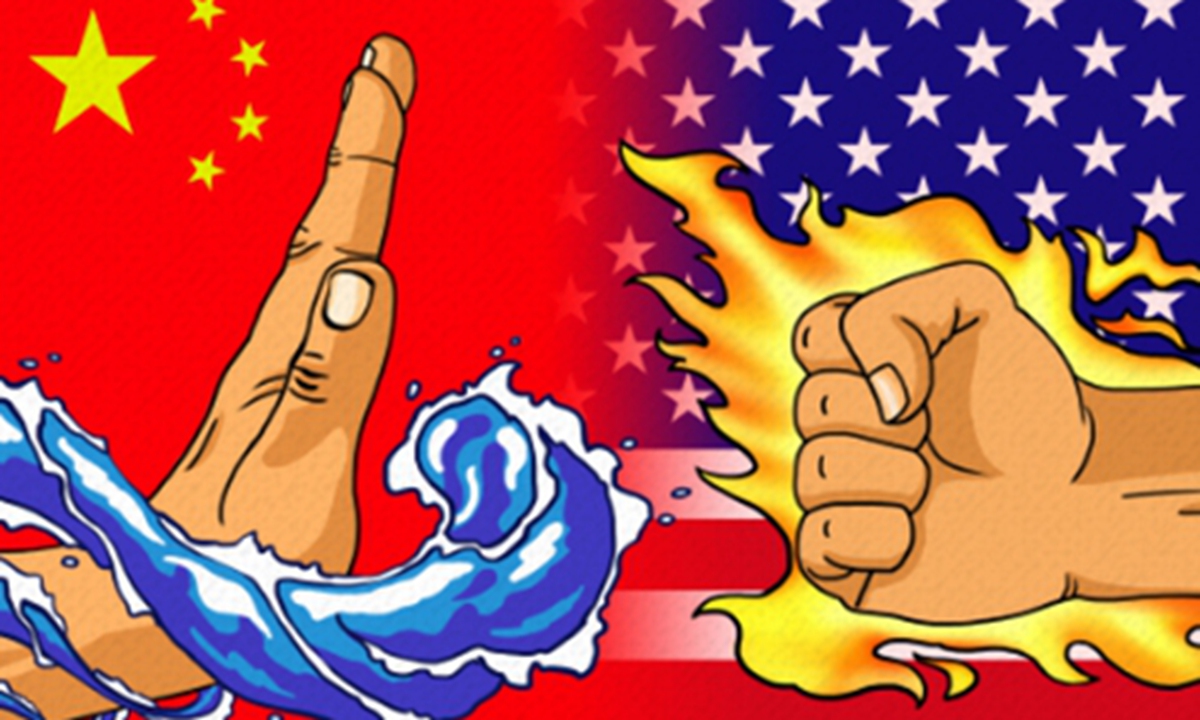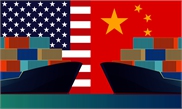
Photo: GT
On China-US trade, US Trade Representative Katherine Tai said on Thursday that human rights are one of the centerpieces of the Biden administration's trade policy, and "forced labor" functions as a "very crude subsidy" that gives China an unfair trade advantage. She claimed the US could use trade tools such as tariffs and a "forced labor" import ban against China. US officials stated on multiple occasions that Washington will not easily abandon the tariffs imposed on Chinese products during the Trump years. They have regarded those tariffs as a tool to pressure China and a bargaining chip for new negotiations.China-US trade is facing a conflicting situation. On one hand, the Biden administration that has inherited the Trump administration's thinking of politicizing trade issues and suppressing China through trade has continuously set up obstacles. On the other, the two countries' demand for each other's market is very strong. Since the second half of last year, trade between them has continued to grow, with the figures in a single quarter or month even surpassing those before the trade war. Next, the geopolitical line dominated by the American political elites will continue to battle with the trade law between the two economies.
Washington launched a ferocious offensive against China's trade out of the following calculations. First, the Trump administration hoped to pressure China to make concessions by using high tariffs. They thought they could squeeze China in areas such as intellectual property rights, investment rules, and industrial policies to make US benefit. Second, they wanted to use high tariffs to force the manufacturing invested by American companies to return to the US. Third, as long as it can harm China, it doesn't matter whether it's beneficial to the US or not.
However, China has been trying its best to conduct reforms based on its own political and economic systems and national conditions. It's impossible for Beijing to concede sovereignty and let Washington decide its methods and pace. Therefore, US pressure is doomed to only have a limited effect. There is no way that it could issue orders to China.
Some manufacturing in recent years is indeed leaving China. But the reasons are complicated, most of which are irrelevant to the trade war. Moreover, the speed of foreign investments flowing into China has outpaced that of foreign capital flowing out. China has become the world's largest foreign direct investment recipient in 2020. More importantly, based on information released by the US, the American investments that left China because of factors such as increased labor costs didn't return to the US, but went to Southeast Asia and South Asia. Craig Allen, president of the US-China Business Council, recently told US media that if the goal of the tariffs imposed on Chinese products "was to increase manufacturing employment in the US, I don't see any evidence that that's happened."
Which country has suffered from the trade war? No economist thinks only China has witnessed losses. According to a study by Oxford Economics in January this year, the cost of the trade war for the US was around 0.5 percent of GDP in 2018-2019, an estimated 245,000 jobs and $88 billion in real household income. If the scenario escalates, the US GDP will shrink by $1.6 trillion over the next five years and result in 732,000 fewer US jobs in 2022.
The China-US trade war has neither changed the trend that China's trade is accounting for an increasing share of global trade, nor has it prevented China's annual GDP growth from being higher than that of the US. China's GDP was only 60 percent of the US GDP in 2016 before Trump assumed office. But the figure rose to 70.2 percent in 2020. US efforts have been proven in vain over the past few years. Except for serving as a political mobilization for a new Cold War, the trade war hasn't brought any benefits to the US. It's a failed war for the US.
Most people agree that the US under Biden is weaker than when Trump just assumed office. The Biden administration has less strength to continue the trade war with China and use it as a means of coercion. The Biden administration has emphasized a lot the importance of rallying allies against China. One of the reasons is that the US is not strong enough to bolster its ambition of suppressing China into making concessions in a hegemonic manner.
The Biden administration has fabricated the accusation of forced labor in the Xinjiang Uygur Autonomous Region. It even cooked up the "crude subsidy" with an attempt to put the label of "forced labor" on China's foreign trade. However, China has become very familiar with the US' trade war. "We don't want to start a trade war but we are not afraid, and will have to fight when necessary." This is a well-known attitude of China's response to the Trump administration's trade war. The US government has changed, but China's attitude remains unchanged.



